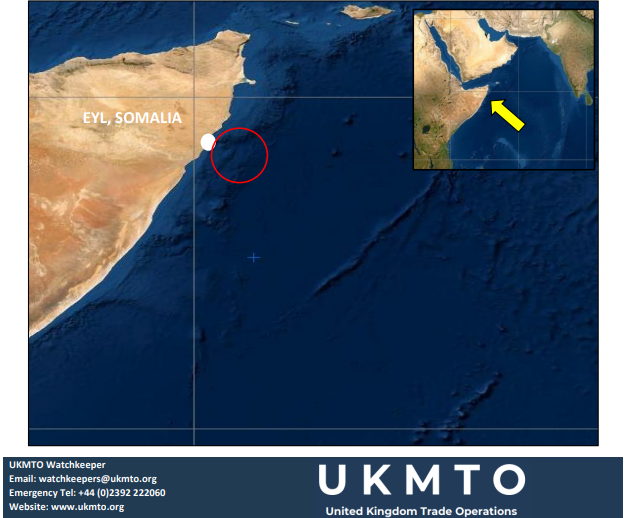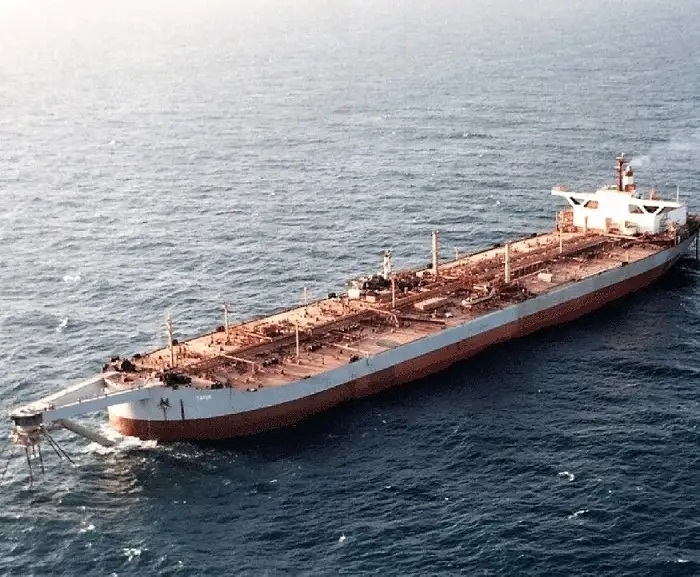Washington claimed that Iranian intelligence was crucial for enabling Yemen’s Houthi movement to target maritime vessels….reports Asian Lite News
The White House has accused Iran of playing a significant role in planning operations against commercial vessels in the Red Sea, asserting that Iranian intelligence was crucial for enabling Yemen’s Houthi movement to target maritime vessels.
In a statement on Friday, Adrienne Watson, the White House national security spokesperson, emphasised that there was no evidence to suggest that Iran was attempting to discourage the Houthis from their alleged reckless behaviour, according to Reuters report.
Simultaneously, vessel tracking data revealed that at least two ships, involved in transporting oil or oil products from the US Gulf Coast to India, were rerouting away from the Red Sea. This strategic shift came as a US-led coalition prepared to safeguard vessels from potential attacks by Yemen’s Houthi militants. The Iran-backed Houthis, claiming support for Palestinians under siege in the Gaza Strip, have employed drones and missiles to attack commercial shipping, compelling vessels to alter courses and take longer routes around the southern tip of Africa.
One such vessel, the Aigeorgis, chartered by BP to transport vacuum gasoil (VGO) from India’s Jamnagar to Texas, shifted its course along Africa’s East Coast toward the Cape of Good Hope. This redirection, prompted by security concerns, added nine days to the journey between India and the US Gulf Coast. VGO, a refining feedstock for gasoline and diesel production, had historically been shipped through the Red Sea by BP.
Equinor, another major player in the shipping industry, chartered the Sonangol Cabinda to carry crude oil from Texas to India. This vessel executed a 180-degree turn in the middle of the Red Sea, altering its course through the Suez Canal towards the Mediterranean.
The US-led naval coalition, involving 20 countries, was announced last week to protect commercial traffic in the Red Sea. However, some participating countries are yet to confirm their involvement, and operational details remain unclear. Shippers, facing uncertainty, have adjusted routes and paused activities involving transit through the region.
The Houthi attacks have disrupted shipping routes, overwhelming African ports with increased maritime traffic. Rising war risk premiums for tankers traveling via the Red Sea have led charterers to consider the longer route around the Cape of Good Hope as a more viable option. Multiple tankers departing from ports east of Suez have also altered courses to avoid the Red Sea, reflecting the complex challenges faced by the shipping industry in the region, it was reported.
Earlier, Yemen’s Houthi leader has warned that his group would attack US ships in the Middle East if Washington waged war against the Iranian-backed militia. “We will not stand idly by if the Americans escalate further and commit foolishness by targeting or waging war against us due to our support for the Hamas movement,” Abdulmalik al-Houthi said on Wednesday in a televised speech aired by Houthi-run al-Masirah TV.
“If the US targets us, we will then retaliate by targeting US battleships and interests in the region with our missiles, drones, and military operations,” he warned. The threat by the Houthi leader came after the US announced on Monday a 10-nation coalition to quell Houthi missile and drone attacks on ships transiting the Red Sea, Xinhua news agency reported.
Britain, France and Italy are among the US-led multinational military coalition.
Houthi rebels have escalated and pledged to continue attacks on Israel-linked commercial ships passing through the Red Sea and Arab Sea, demanding an end to Israel’s aggression on the Gaza Strip and the delivery of food and medicine supplies to the enclave.
The Houthis control large swathes of northern Yemen, including the capital Sanaa and the strategic port city of Hodeidah on the coast of the Red Sea, where up to 12 per cent of world trade passes through.

Maritime Alert: Somali Pirates Strike After Decade
A British sea trade monitoring agency reported the hijacking of a dhow trading vessel near the town of Eyl off the coast of Somalia, indicating a resurgence of Somali pirate activity after nearly a decade of relative calm. The United Kingdom Maritime Trade Operations cited military authorities as the source of the information and confirmed that the vessel was seized by heavily armed individuals. The agency has initiated an investigation, although no details about the identity of the hijackers have been provided.
In a separate incident, the European Union’s Naval Force reported the hijacking of a Maltese-flagged merchant vessel, the bulk carrier Ruen, in the Arabian Sea. The vessel, with 18 crew members on board, was seized near the Yemeni island of Socotra, around 240 kilometers off the Somali coast. One crew member was evacuated for medical care on an Indian navy ship, and suspicion has fallen on Somali pirates for this hijacking, although the hijackers’ identity and demands remain unknown.
Recent attacks on commercial ships in the Red Sea by Iran-backed Houthi rebels from Yemen have also contributed to maritime concerns. The Houthis initially targeted Israeli-linked vessels over the Israel-Hamas war, but their attacks escalated, impacting ships without clear ties. The Pentagon, last month, revealed that five armed assailants who hijacked a commercial ship near Yemen were likely Somalis, emphasizing the piracy-related nature of the incident.
In response to the escalating threats, Somalia’s maritime police have intensified patrols. While attacks by Somali pirates peaked between 2010 and 2015, reaching over 350 incidents, international naval patrols had contributed to a significant decline in such incidents. The recent hijackings raise concerns about a potential resurgence of piracy in the region.
ALSO READ: UK to increase family visa salary requirement in stages

Leave a Reply